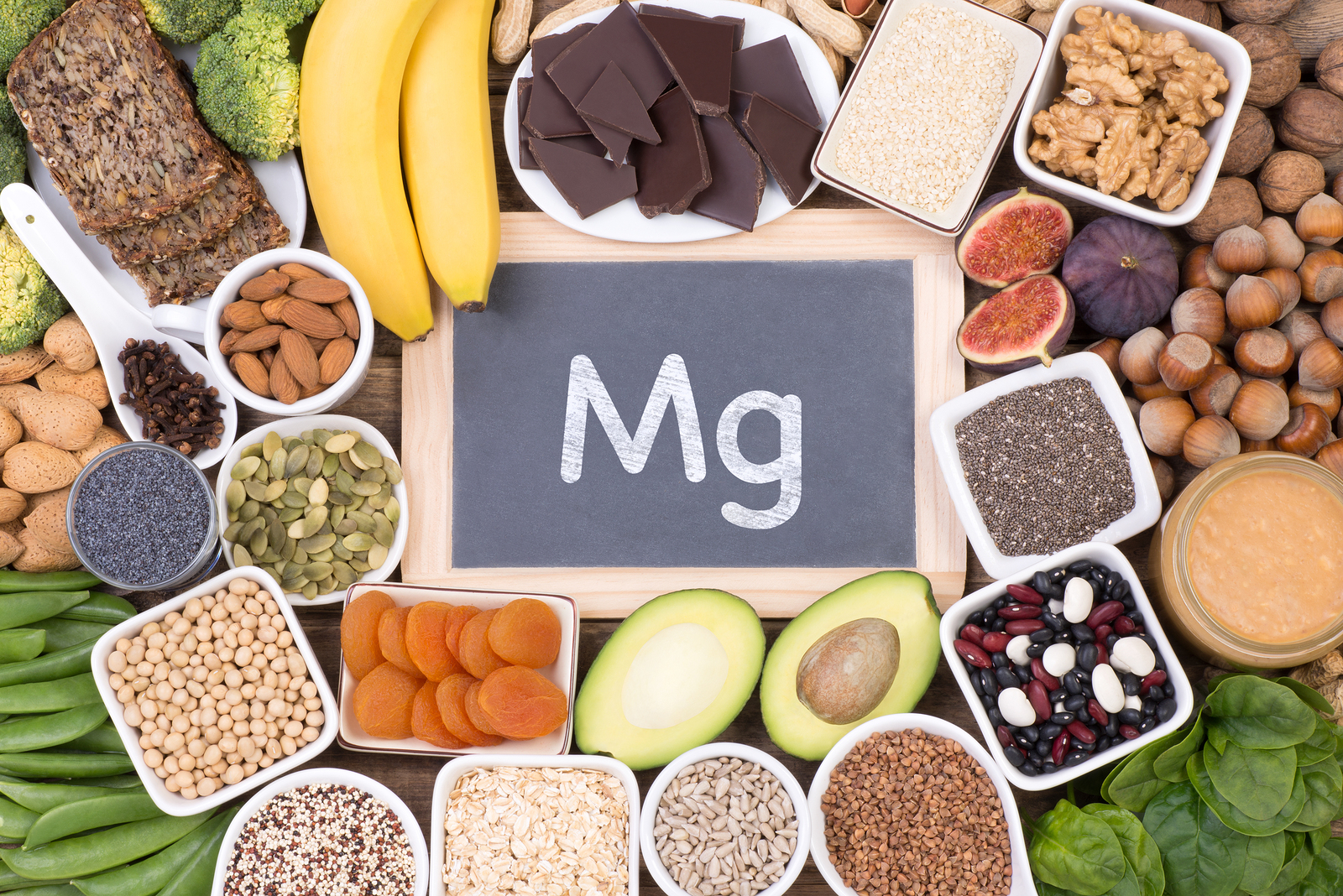When I was in Belize, I went on howler monkey tour. The shaman guide kept telling me exactly what ailment certain monkeys had — “That one has diarrhea,” he would say, or “That one has an upset stomach.” I asked him how he could possibly know that from so far away, and he said that he could tell by the trees the monkeys had chosen to feed on; specific trees could help the monkeys with specific issues. Isn’t it amazing that these monkeys knew exactly which natural medicine they needed? And wouldn’t it be great if humans could s easily recognize what they are missing?
The truth is, we can! We’ve just forgotten how to be still enough to listen to what our bodies are telling us. Your body has an amazing ability to let you know exactly what you need, but the messages it sends through specific symptoms are all too often muddled by addictions and cravings we can’t break free from. Women are often unfamiliar with what the specific symptoms they are experiencing could be telling them. And they don’t know that sudden cravings might be a clue to exactly which minerals or nutrients they are lacking.
Take chocolate, for example. Many of the women I know have found themselves craving chocolate so intensely that even if they’re all ready for bed, they’ll get dressed and make a trip to the corner store just to be able to stop thinking about it. I’ve heard women say “I tried to control myself, but the craving was so strong, I finally had to give in.” While I certainly don’t think you should allow your cravings to control you, I think it might be reassuring to hear that there’s a message behind some of those cravings. And in the case of chocolate, it could mean that your body is crying out for some magnesium.
What is Magnesium and Why Do We Need It?
Magnesium is an essential mineral that is critical to cell functioning. Most of the magnesium in your body is found in bones and soft tissues; only about 1 % is present in your blood. That’s why the most common blood tests can’t show a magnesium deficiency, though a red blood cell test can indeed reveal magnesium levels. Still, one great way to know if you need more is to listen carefully when your body sends out messages. We’ll talk more about some specific signs in a minute, but first let’s see why having enough magnesium is so crucial.
Magnesium helps regulate blood pressure, blood sugar, and immune system functioning. But that’s not all! Magnesium also plays a role in regulating heart rhythm and nerve functioning, bone strength, cognitive functioning and sleep. Are you starting to see why we should pay attention to how much magnesium we get?
There’s a wealth of research on the benefits of magnesium, and we’re learning more about it all the time. A 2016 comprehensive meta-analysis of 40 studies that included more than 1 million people found that an increase in dietary magnesium decreased the risk of heart failure, Type 2 diabetes and stroke. Other studies have shown that a high intake of magnesium can strengthen bones, ease migraines, increase cognitive functioning, and aid in sleep. That’s a lot of good reasons to be sure you are getting enough!
How Widespread is Magnesium Deficiency?
According to the National Institutes of Health, surveys consistently show that the majority of Americans aren’t getting the daily recommended amount of magnesium in their food. So many factors are at play — poor diets crammed full of processed foods, overindulgence in alcoholic beverages, even the natural course of aging — all of these and more can reduce magnesium levels and leave you feeling lousy.
Stress, which is so common in everyday life, is another factor to pay attention to. Stress has an impact on magnesium levels because when your body is under stress your magnesium – and other essential nutrients – are put to work, so they get depleted. So even if you are eating plenty of magnesium rich foods, you may end up with a magnesium deficiency during stressful periods.
Magnesium Deficiency: How Do You Know if You Are Deficient?
Severe magnesium deficiency is quite rare, but even being a little low can cause plenty of health issues. And I don’t think we should wait until people are in true crisis to talk about this. Most people wouldn’t dream of waiting to fill their car with gas until it was on it’s last gallon — why wait to give your body more of this essential mineral?
And for some people, it’s even more important to understand the signs of magnesium deficiency. Older adults should be aware that the natural process of aging increases the risk of decreased magnesium levels. Not only is it more difficult for your aging body to absorb the mineral, but many older adults also take medications that can further interfere with absorption.
Anyone taking certain medications, like diuretics or antibiotics, are at higher risk of deficiency, as are those with digestive disorders, kidney disease, or alcoholism.
It doesn’t take a large deficiency to cause problems – but some of the symptoms are so common you might not connect the dots. Some typical early symptoms include fatigue, weakness, loss of appetite, pain in joints, constipation and memory difficulties. But there are some symptoms that are less well known, and it’s these that I want to take a closer look at. Let’s get started.
7 Signs You May No Be Getting Enough Magnesium
While there are, of course, other reasons you may develop the following symptoms, these seven things are often connected to magnesium deficiency.
Migraines
Anyone who has been plagued with migraines can tell you how awful these headaches are. A severe migraine can send you to bed for a day or two, unable to do anything more than lie still in a dark, quiet room.
There is a great deal of research showing that people with migraines often have lower levels of magnesium than those who do not suffer from migraines. Studies have also shown that treatment with magnesium can be effective in reducing symptoms of migraines.
Too often, people think that migraines are just something they have to suffer through. But I’ve heard so many patients tell me that simply adding magnesium to their routine has made the difference between being entirely out of commission and being able to live their lives fully. That’s why I always look at both magnesium and iron when someone comes to me for help with migraines.
Leg Cramps
Because magnesium helps alleviate nerve disruptions that can lead to cramps, if you are experiencing frequent leg cramps it could be a sign that your magnesium levels are too low. One explanation is that low magnesium levels allow too much calcium into those nerve cells, thus creating too much stimulation in the muscle nerves. And because women are so aware of the importance of calcium intake, but many haven’t heard that magnesium is just as important, they are often increasing calcium while ignoring magnesium, creating an even greater imbalance.
Twitching Eyes
Cramps and spasms aren’t relegated to your legs only. Have you ever been standing in front of a room full of people, doing a presentation, and trying to ignore an incessant twitching in your eyes? Those are spasms in your eyelids, and they could be caused by a magnesium deficiency. Those twitches may only be noticeable to you, but I know from personal experience how annoying they are. And, like these other symptoms, these twitches are trying to tell you something.
Restless Legs
Involuntary movement of legs, often called restless legs, can be particularly disruptive to sleep. I have had patients come in telling me they are getting zero sleep at night because of their restless legs – and they have no idea what to do about it! And because sleep is essential to alleviating stress, it can be a downward spiral. It’s so important to understand what’s going on behind the scenes. What is causing these symptoms? Magnesium deficiency could be one piece.
Intense PMS Symptoms
Once a month, do you find yourself doubled over with painful cramps, riding an emotional roller coaster, and end up bloated and miserable? These symptoms can all be signs of low magnesium. One study showed success in treatment of premenstrual mood changes with magnesium supplements. A number of other studies have shown similar success in relieving severity of PMS symptoms with magnesium supplementation, suggesting that that low magnesium is indeed a factor. I always add magnesium to the regimen for patients complaining of severe PMS.
Irregular Heartbeat
Arrhythmia, or irregular heartbeat, is one of the more serious symptoms that can indicate magnesium deficiency. While arrhythmia often has no symptoms, some people experiences heart palpitations – pauses between heartbeats. Other symptoms are possible as well: lightheadedness, chest pain, fainting, shortness of breath.
Now, of course, the first thing you should do if you feel something irregular happening with your heart is to see a health care practitioner. Any number of serious issues could be at play; arrhythmia may increase the risk of heart failure or stroke in very severe cases.
But if serious issues are ruled out, and you still have the symptoms, adding magnesium could help. Some patients with arrhythmia have been found to have lower magnesium levels than healthy people, and treatment with magnesium injections has improved heart function significantly.
Blood Pressure Dysregulation
Again, if you have problems with your blood pressure, the first thing to do is see a health care professional. High blood pressure is a risk factor for heart disease, so regulating your blood pressure is very important.
There is some evidence that magnesium deficiency may increase blood pressure. While this evidence comes from animal studies, there have also been observational studies in humans that indicated that low magnesium levels may raise blood pressure. Reviews of controlled studies on the benefits of magnesium concluded that magnesium supplements may lower blood pressure, particularly in adults with high blood pressure.
How Much Magnesium Do You Need, and What’s the Best Way to Get It?
The Daily Recommended Intake (DRI) for adults ranges from 310 mg to 420 mg per day, depending on age, gender, and whether a woman is pregnant or lactating.
One great way to get enough magnesium is to pay close attention to your diet. There are many foods that are naturally high in magnesium; if you make sure to include these in your regular meal planning, you probably won’t need to worry.
But sometimes, it’s not that easy. Some digestive disorders, and some medication interactions, can make absorption of magnesium more difficult. That’s why I think taking a high-quality multivitamin that contains magnesium is always a good idea.
It’s also important to note that the type of magnesium matters. When taking a supplement, look for magnesium citrate, magnesium glycinate, and magnesium aspartate. Those are the forms that can give you the boost you need, and help reverse magnesium deficiency.
Eat These 3 Foods to Boost Magnesium Intake
Like I said before, there are plenty of foods high in magnesium. Here are three ideas that I particularly enjoy — including a sweet treat!
1. Leafy Greens
I love salads in the summertime, and leafy green vegetables are such a great source of magnesium. One cup of cooked spinach, for example, has 137 mg of magnesium! That’s more than a third of the DRI for most women. Kale, collard greens, mustard greens and turnip greens are other great leafy sources of magnesium. And if you whip up a dressing using fresh avocados, you’ll boost your intake even more!
2, Nuts and Seeds
Many types of nuts and seeds contain a lot of magnesium, including almonds, cashews, brazil nuts, and flax, chia and pumpkin seeds. Pumpkin seeds are one of the best, with 150 mg per 1-ounce serving.
What I love about nuts and seeds is their versatility. You can find an all-natural nut or seed butter; toss them into salads and stir frys; and mix them up into a magnesium-packed trail mix to take along on a hike.
3. Dark Chocolate
This is really great news for so many women, who love to have just a little sweet treat after a meal. Dark chocolate (at least 70% cocoa) is actually good for you! A one ounce square contains 64 mg of magnesium – 16% of your DRI.
Can I Get Too Much Magnesium?
If you are solely relying on food for magnesium, you are very unlikely to suffer any adverse side effects from having too much. Your kidneys filter excess magnesium from food in the digestion process, and excrete it from your body in urine.
Supplementation, however, is another story. Taking in too much magnesium in supplement form can cause diarrhea, abdominal cramping, and nausea. And it is possible to overdose, leading to magnesium toxicity. That’s why you should consult with a healthcare practitioner before starting supplements, and take exactly as they direct.
Magnesium supplements can also interact with some medications. It can decrease effectiveness of tetracyclines, a form of antibiotic, if taken too close together. And because magnesium can naturally lower your blood pressure and relax muscles, supplements can negatively interact with medications for high blood pressure and muscle relaxants.
Feel Magnificent When You Get Enough Magnesium!
Symptoms like migraines, PMS cramps and bloating, twitching eyes, and leg cramps aren’t usually severe enough to send women to the hospital, but when you are dealing with them day in and day out, they can really get you down. Even low level magnesium deficiency can put a damper on life! Remember, any symptom is your body trying to send you a message; it’s up to you to listen!
Here’s one last tip to help you load up on magnesium. Start with organic chicken broth, and gather as many leafy greens as you can find. Add carrots and whatever spices you like most, and voila, you have a delicious soup! Make a huge batch, and eat two cups a day to really pack in the nutrients you need. Just wait to see how great you can feel!
References:
https://draxe.com/magnesium-deficient-top-10-magnesium-rich-foods-must-eating/
http://www.health.com/nutrition/magnesium-deficiency#how-common-magnesium-deficiency-pills
https://www.healthline.com/nutrition/magnesium-deficiency-symptoms
https://www.huffingtonpost.com/christiane-northrup/magnesium-calcium_b_509115.html








